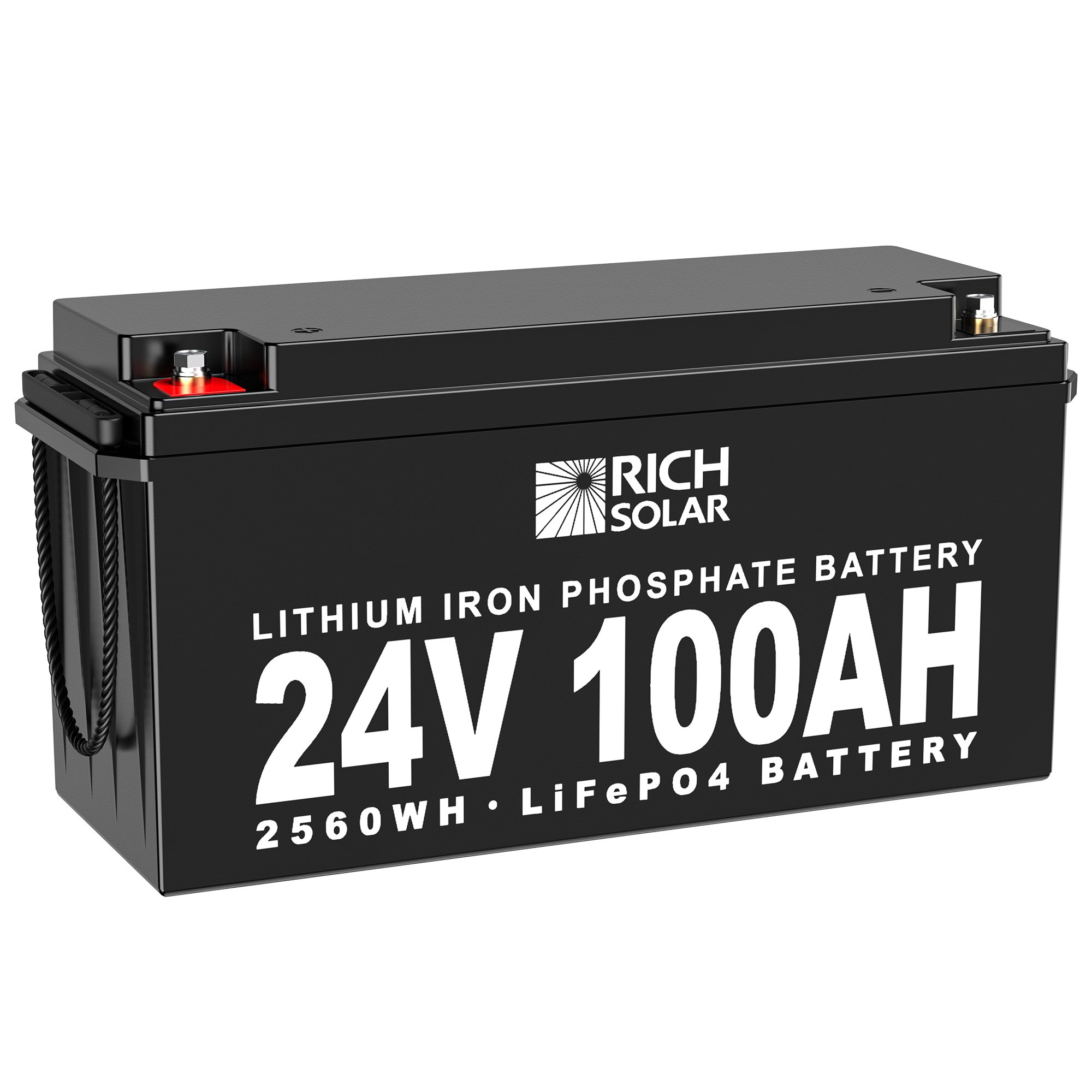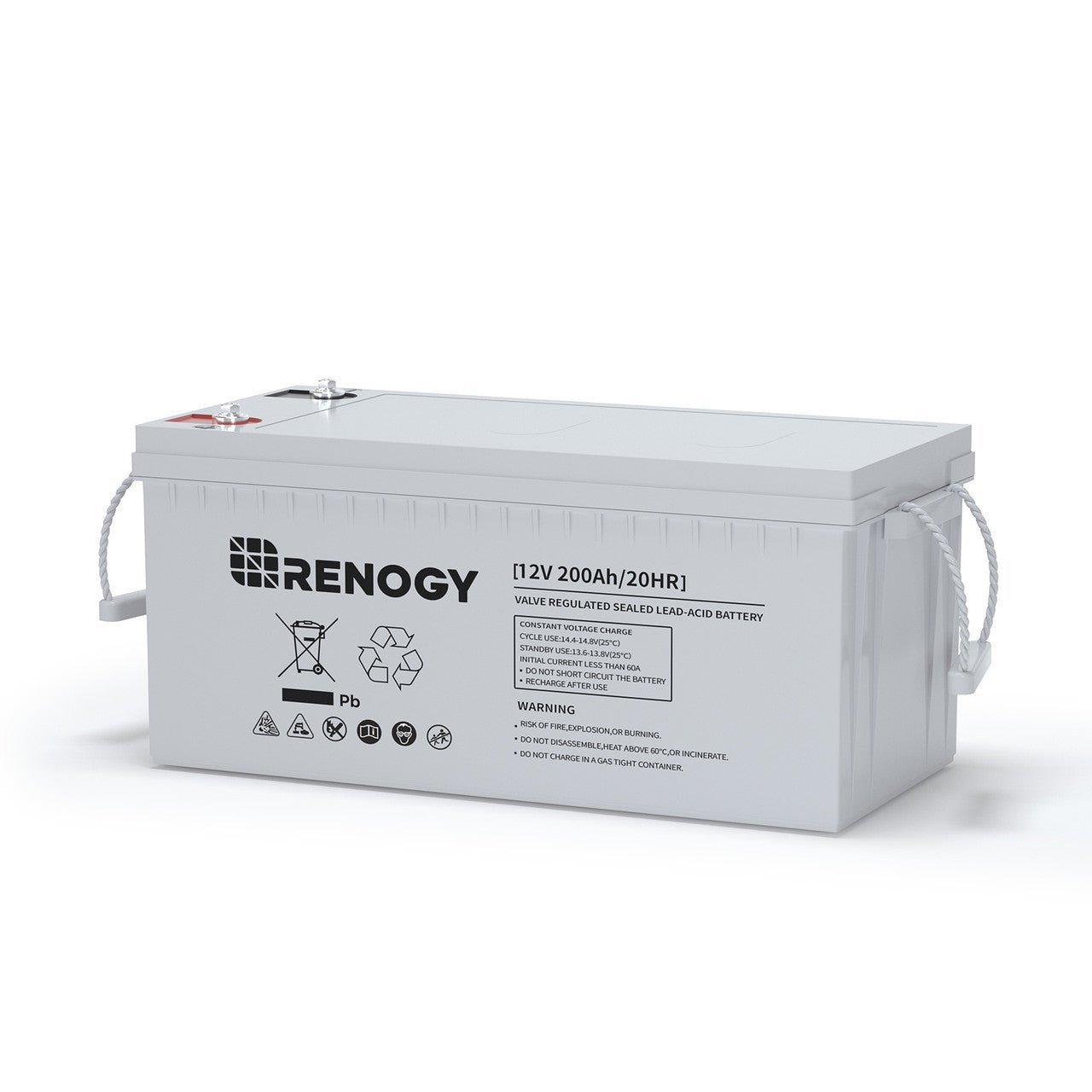
Batteries play a crucial role in storing the power generated by solar panels for use when the sun isn't shining. When considering which battery to choose for your solar setup, you'll likely come across terms like Ah (ampere-hour) and kWh (kilowatt-hour). But what exactly do these terms mean, and how do they relate to understanding the capacity of a solar battery? Let's take a look at the details.
What is Ah?
Ah, or ampere-hour, is a unit of electrical charge commonly used to measure the capacity of a battery. It represents the amount of electric charge that flows past a given point in an electrical circuit over one hour when a current of one ampere is flowing continuously. Many solar brands, such as RICH SOLAR and Renogy, that sell standalone batteries measure or advertise their battery capacity in ampere-hour.
Imagine Ah as the size of a water tank. The larger the tank (higher Ah rating), the more water (electricity) it can store. Similarly, a battery with a higher Ah rating can store more electrical energy.
Understanding kWh
On the other hand, kWh stands for kilowatt-hour, a unit of energy equal to one kilowatt of power used for one hour. It's a measure of energy consumption or production over time and is commonly used to quantify the amount of electricity consumed by households or generated by solar panels. You may see batteries with the Wh (watt hours) printed on the front or back such as the RICH SOLAR battery pictured above. To get Wh from kWh simply multiply the kilowatt hour by 1000, or move the decimal three places to the right.
As an example from the battery above: 2.56kWh = 2560Wh.
Wh = kWh*1000
2560 = 2.56*1000
Think of kWh as the total amount of water that flows out of a pipe over a certain period. The longer the pipe (higher power output or consumption) and the greater the flow rate (higher power), the more water (electricity) will pass through in a given time frame.
Converting Ah to kWh
Now, here comes the tricky part: converting Ah to kWh. To understand this conversion, we need to consider both the voltage of the battery and the efficiency of its operation.
The formula to convert Ah to kWh is:
kWh = Ah*Volts/1000
For example, let's say you have a 12-volt battery with a capacity of 100Ah:
kWh = 100Ah*12 Volts/1000 = 1.2 kWh
This means your battery can store 1.2 kWh of energy when fully charged.
Why is Understanding Capacity Important?
Understanding the capacity of a solar battery is crucial for designing an efficient and reliable solar power system. It helps you determine how much energy you can store and use when the sun isn't shining, allowing you to size your battery bank appropriately for your energy needs.
By knowing the Ah and kWh ratings of your battery, you can estimate how long your solar system can power your appliances and devices during periods of low sunlight or at night. This knowledge enables you to make informed decisions about the size and configuration of your solar setup, ensuring optimal performance and cost-effectiveness. Another aspect to consider is battery type and the pros and cons of each.
Both Ah and kWh are essential units for evaluating the capacity and energy storage capabilities of solar batteries. By understanding these concepts and their relationship, you can better assess the suitability of different batteries for your solar power needs and make informed decisions when designing your solar energy system. Looking for a battery for your off-grid solar setup? Shop Solar Generators and Power Stations Plus to find the best battery type and capacity for you.






